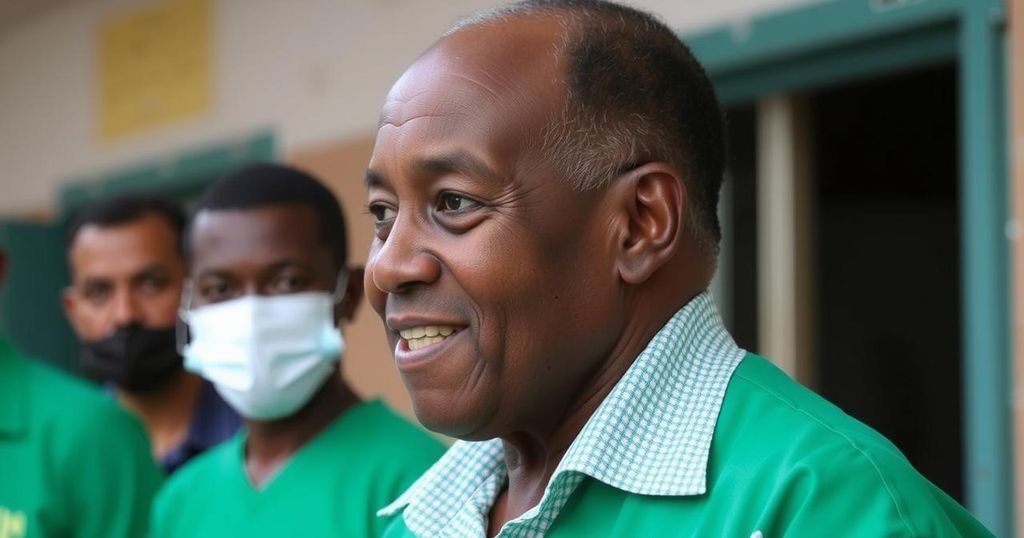Comoros Elections Amid Opposition Boycott Concerns

The Comoros conducted elections for new lawmakers, overshadowed by opposition groups abstaining due to transparency concerns. President Azali Assoumani’s son, Nour El Fath Azali, is contesting a constituency seat amid allegations of electoral misconduct and logistical failures during voting. The ruling CRC party faces no opposition in many constituencies, raising further concerns about the fairness of the electoral process.
On Sunday, the Comoros Republic held elections for lawmakers, amidst significant opposition discontent over the election’s integrity. Notably, Nour El Fath Azali, the son of President Azali Assoumani and the current secretary general, is contesting for a parliamentary seat near the capital, Moroni. The elections faced logistical challenges, with multiple voting facilities opening late due to material shortages, and some booths lacked proper privacy measures for voters.
President Azali’s rising authoritarianism has incited allegations of electoral fraud, particularly following his controversial re-election earlier this year. Meanwhile, opposition groups have chosen to participate strategically, rather than fully boycotting the elections as they did in 2020. Despite the criticisms, the ruling Convention for the Renewal of the Comoros (CRC) party is poised to dominate once more, as many constituencies present no competition for their candidates.
The current political climate in the Comoros has been characterized by growing authoritarianism and allegations of electoral manipulation under President Azali Assoumani, who has been in power in various capacities since a coup in 1999. His son, Nour El Fath Azali, recently appointed secretary general, is perceived to hold significant influence, functioning almost as a prime minister. The opposition’s past experiences, particularly in the 2020 elections, have prompted them to selectively engage in the current electoral process to challenge the ruling party while avoiding outright boycotts. As the nation faces critical elections, the level of voter transparency remains under scrutiny, especially given the logistical issues and prior conflicts that marred previous electoral events. The importance of this election extends beyond immediate legislative outcomes, as it will influence the political trajectory of the Comoros for years to come.
The elections in the Comoros reveal deep-seated tensions within the nation’s political landscape, as the ruling party continues to consolidate power amidst growing opposition dissent. With logistical challenges impacting the voting experience and a past filled with allegations of fraud, the legitimacy of this electoral process is under considerable scrutiny. As the CRC is expected to maintain significant control in parliament, the actions taken by both the ruling party and the opposition in this election will likely have profound implications for the future governance of the Comoros.
Original Source: www.barrons.com







